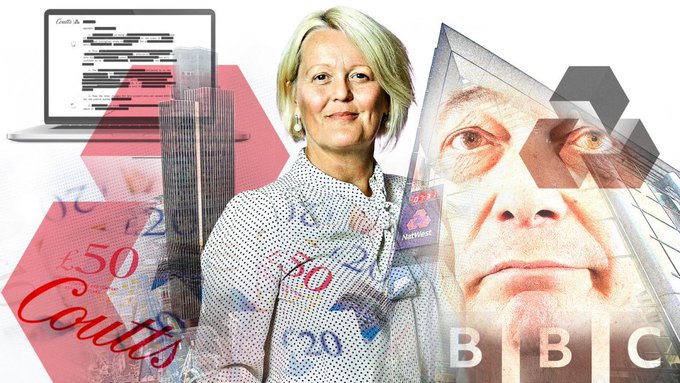Chancellor Jeremy Hunt and Prime Minister Rishi Sunak were ultimately instrumental in forcing NatWest CEO Dame Alison Rose’s resignation. The Farage banking saga may well have sparked anti-woke sentiments within the broader Tory party and among its supporters. The Conservatives already received a significant boost from holding on to Boris Johnson’s vacated seat on the back of Sadiq Khan’s aggressive anti-pollution measures, which did not go down well with voters. It now looks likely that the Conservatives will put themselves in front of the electoral as the anti-woke choice.
For the Prime Minister, it has been a good week. Not only did he, for once, many may say, act decisively, but he also managed to outdo his predecessor while at the same time pitching his party in a new light and potentially winning a whole new set of voters.
The Farage-NatWest saga in brief
In June, Nigel Farage tweeted a video announcing that Coutts, an exclusive bank, had decided to close his accounts, thus making him a “non-person”. He later tweeted that nine other financial institutions had also refused to take him on as a business customer, claiming the reason for this was the fact that he was a politically exposed person (PEP).
In early July, the BBC reported exclusively that Farage’s accounts were closed due to a lack of funds and had nothing to do with his political opinions. But this story turned out to be inaccurate.
Nigel Farage had requested and received a 40-page Coutts document containing the rationale behind the decision. Bank staff had spent months assessing the “significant reputational risks of being associated with him”. The report concluded that the former Ukip leader’s views were “at odds with our position as an inclusive organisation”.
The BBC had to issue an apology and correction, forcing the source of the story, namely NatWest CEO Dame Alison Rose, to admit her part. Pressure from Downing Street led to her swift resignation on 26 July despite her excellent reputation and record at the helm of the bank. Nigel Farage has called for more resignations.
The Prime Minister, meanwhile, already tweeted his dismay when the story of Nigel Farage’s bank account closure broke first:
“This is wrong. No one should be barred from using basic services for their political views. Free speech is the cornerstone of our democracy.”
After Dame Alison admitted that she had been the source of the BBC story and apologised to Mr Farage, Sunak and Hunt’s offices wasted no time in briefing the media and leaving her no option but to resign early Wednesday morning.
Although it was Boris Johnson who last week said that he would “wager the contents” of his account that Dame Alison Rose was behind the BBC story and calling for her resignation, Rishi Sunak can claim his resolute intervention led to her resignation.
His actions defending free speech will go down well with voters, even if the story centres around Nigel Farage. He is now somewhat of an anti-woke champion for enshrining the right to hold unpopular political opinions. The bi-election victory in Johnson’s constituency is primarily due to similar sentiments as voters rejected Labour’s ultra-green policies. The Conservatives will likely rally their troops to win support among voters opposed to all things woke.
Government introduces new regulations for banks
Up until recently, banks could close customer accounts if they felt their reputation was at risk. The Treasury last week disclosed new rules for financial institutions to protect customers’ freedom of speech. The new rules mean that banks must reveal the reasons for account closures unless they relate to criminal activity. Customers can then contact the Financial Ombudsman Service with complaints. Banks must also extend the notice period from 30 to 90 days.
With these new rules, the government hopes to protect freedom of speech and expression.
In a press release, Economic Secretary to the Treasury, Andrew Griffith, said:
“Freedom of speech is a cornerstone of our democracy, and it must be respected by all institutions.
“Banks occupy a privileged place in society, and it is right that we fairly balance the rights of banks to act in their commercial interest with the right for everyone to express themselves freely.
“These changes will boost the rights of customers – providing real transparency, time to appeal and making it a much fairer playing field.”




